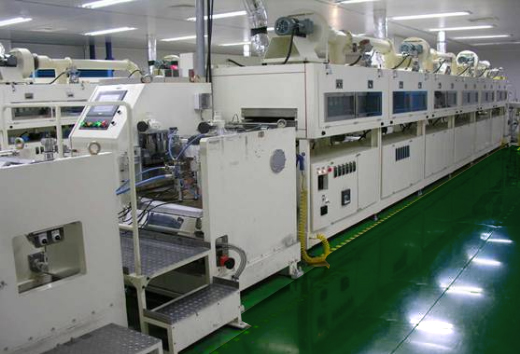Exploring the Potential of Lithium Batteries in Smart Grids
Introduction:
In recent years, the integration of renewable energy sources into the power grid has gained significant momentum. As a result, the demand for efficient energy storage solutions has increased to compensate for the intermittent nature of renewable energy generation. Lithium batteries, known for their high energy density and long cycle life, have emerged as a promising option for energy storage in smart grids. This article aims to explore the potential of lithium batteries in smart grids and discuss their advantages and challenges.
Advantages of Lithium Batteries in Smart Grids:
1. High Energy Density: Lithium batteries have a much higher energy density compared to traditional lead-acid batteries, making them more compact and lightweight. This allows for easier installation and scalability in smart grid applications.
2. Long Cycle Life: Lithium batteries can undergo thousands of charge-discharge cycles without significant capacity degradation. This long cycle life ensures their reliability and longevity in smart grid operations.
3. Fast Response Time: Lithium batteries can charge and discharge at a rapid rate, enabling them to respond quickly to fluctuations in energy demand and supply. This feature is essential in maintaining grid stability and ensuring a reliable power supply to consumers.
4. Flexibility and Scalability: Lithium battery systems can be easily integrated into existing smart grid infrastructures. They can be connected in parallel or series to meet the specific energy storage requirements of the grid. Additionally, their modular design allows for easy expansion and scalability as the energy storage needs evolve.
Challenges of Lithium Batteries in Smart Grids:
1. Cost: The initial cost of lithium batteries is higher compared to other energy storage technologies. However, the declining prices of lithium-ion cells and the potential for cost savings in the long run make them an attractive option.
2. Safety Concerns: Lithium batteries have a higher risk of thermal runaway and fire if not properly designed, installed, and managed. Safety protocols and advanced monitoring systems are necessary to prevent accidents and ensure safe operation.
3. Environmental Impact: The extraction and disposal of lithium batteries can have environmental implications if not managed properly. It is important to implement responsible recycling and disposal practices to mitigate any potential harm.
4. Resource Availability: Lithium is not an abundant resource globally, and its availability may become a limiting factor in the widespread adoption of lithium batteries. However, ongoing research and development efforts aim to explore alternative materials and improve lithium recycling methods.
Applications of Lithium Batteries in Smart Grids:
1. Renewable Energy Integration: Lithium batteries can store excess energy generated from renewable sources during periods of low demand and release it during peak demand periods. This helps balance the grid and optimize the utilization of renewable energy resources.
2. Peak Shaving: Lithium batteries can be used to reduce peak power demand by storing energy during off-peak hours and supplying it during peak demand periods. This helps alleviate strain on the grid and reduces the need for additional power generation facilities.

3. Microgrids and Remote Areas: Lithium batteries can enable the development of microgrids in remote areas or regions with unreliable grid infrastructure. They provide a stable and continuous power supply, improving the energy access and resilience of these communities.
4. Grid Stability and Ancillary Services: Lithium batteries can support grid stability by providing ancillary services such as frequency regulation, voltage support, and reactive power control. Their fast response time allows for quick adjustments to maintain grid reliability.
Conclusion:
Lithium batteries possess several advantages that make them a suitable energy storage solution for smart grids. Despite the challenges associated with cost, safety, and resource availability, ongoing advancements in technology and regulatory frameworks are addressing these concerns. As the transition towards a cleaner and more sustainable energy future accelerates, the potential of lithium batteries in smart grids is likely to be realized, revolutionizing the way we generate, store, and distribute electricity.
-
 The 48V LiFePO4 battery is a type of rechargeable battery that has gained popularity due to its long-lasting performance and reliability. LiFePO4 stands for Lithium Iron Phosphate, which is the chemical composition of the battery's cathode material. This technology is becoming increasingly popular in various applications, including electric vehicles, solar energy storage, and backup power systems. In this article, we...En savoir plus
The 48V LiFePO4 battery is a type of rechargeable battery that has gained popularity due to its long-lasting performance and reliability. LiFePO4 stands for Lithium Iron Phosphate, which is the chemical composition of the battery's cathode material. This technology is becoming increasingly popular in various applications, including electric vehicles, solar energy storage, and backup power systems. In this article, we...En savoir plus -
 As a motorcycle enthusiast, you know how crucial it is to have a reliable battery system. A good battery is essential for starting your motorcycle and keeping it running smoothly. The last thing you want is to be stranded on the side of the road because your battery died. That's where the LiFePO4 motorcycle battery comes in. This new...En savoir plus
As a motorcycle enthusiast, you know how crucial it is to have a reliable battery system. A good battery is essential for starting your motorcycle and keeping it running smoothly. The last thing you want is to be stranded on the side of the road because your battery died. That's where the LiFePO4 motorcycle battery comes in. This new...En savoir plus -
 Introduction Every car owner knows how important it is to have a reliable car starter battery. Without it, you can start your car and get where you need to go. The last thing you want is to be stuck on the side of the road with a dead battery. That why it essential to invest in a high-quality car...En savoir plus
Introduction Every car owner knows how important it is to have a reliable car starter battery. Without it, you can start your car and get where you need to go. The last thing you want is to be stuck on the side of the road with a dead battery. That why it essential to invest in a high-quality car...En savoir plus -
 The importance of having a reliable battery charger for your vehicle cannot be overstated. Whether you are using your vehicle for personal or commercial purposes, a dead battery can cause significant inconvenience and even financial loss. That is why you need an efficient and reliable onboard battery charger like the 24V onboard battery charger to ensure that your vehicle's battery...En savoir plus
The importance of having a reliable battery charger for your vehicle cannot be overstated. Whether you are using your vehicle for personal or commercial purposes, a dead battery can cause significant inconvenience and even financial loss. That is why you need an efficient and reliable onboard battery charger like the 24V onboard battery charger to ensure that your vehicle's battery...En savoir plus -
 La capacité nominale d'une batterie de démarrage est une mesure de la quantité d'énergie que la batterie peut stocker et fournir pour démarrer le moteur d'un véhicule. Cette capacité est généralement exprimée en ampères-heures (Ah) et constitue un facteur important à prendre en compte lors de la sélection d'une batterie pour une application particulière. En général, une capacité nominale plus élevée indique que la batterie est...En savoir plus
La capacité nominale d'une batterie de démarrage est une mesure de la quantité d'énergie que la batterie peut stocker et fournir pour démarrer le moteur d'un véhicule. Cette capacité est généralement exprimée en ampères-heures (Ah) et constitue un facteur important à prendre en compte lors de la sélection d'une batterie pour une application particulière. En général, une capacité nominale plus élevée indique que la batterie est...En savoir plus -
 We rely heavily on portable electronic devices for various purposes. Whether it's smartphones, laptops, cameras, or even electric vehicles, the need for a reliable power source is paramount. This is where the 100Ah LiFePO4 lithium battery comes into play, providing long-lasting performance to power our devices efficiently and effectively. The 100Ah LiFePO4 lithium battery is a type of rechargeable...En savoir plus
We rely heavily on portable electronic devices for various purposes. Whether it's smartphones, laptops, cameras, or even electric vehicles, the need for a reliable power source is paramount. This is where the 100Ah LiFePO4 lithium battery comes into play, providing long-lasting performance to power our devices efficiently and effectively. The 100Ah LiFePO4 lithium battery is a type of rechargeable...En savoir plus -
 LiFePO4 batteries, also known as lithium iron phosphate batteries, have gained popularity as an alternative to traditional lead-acid batteries. These batteries offer several benefits, including longer lifespan, faster charging, and better performance in extreme temperatures. In this article, we will explore these benefits in more detail. Longer Lifespan One of the biggest advantages of LiFePO4 batteries is their longer...En savoir plus
LiFePO4 batteries, also known as lithium iron phosphate batteries, have gained popularity as an alternative to traditional lead-acid batteries. These batteries offer several benefits, including longer lifespan, faster charging, and better performance in extreme temperatures. In this article, we will explore these benefits in more detail. Longer Lifespan One of the biggest advantages of LiFePO4 batteries is their longer...En savoir plus

